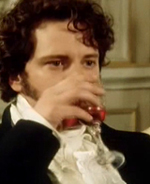Christiaan van der Veer
Christiaan is a retired character played by Emily
Family
- Father: Cornelius Pieter Vanderveer, 1739-1808
- Mother: Maria Adeline García de Vanderveer, 1752-1781
Background
Christiaan was born in Curaçao, to a Dutch merchant who had taken up residence on the island when he married a Catholic free Creole woman of Spanish and Afro-Caribbean descent. The family lived happily, until the outbreak of the Fourth Anglo-Dutch War. Christiaan's father removed his family back to the Netherlands following the attacks made upon St. Eustatius, Saba, and Saint Martin in 1781; fearing the same fate lay in store for other colonial holdings, no matter how well-defended. Sadly, Maria, being then heavily pregnant with her second child, succumbed to illness and early labour on the voyage, and her baby girl died soon after. Cornelius returned to Amsterdam a man much chastened by life. Having truly loved Maria, he never had the heart to re-marry, instead placing his energies into conducting his business and raising his son in the capital, a safe distance from the foreign ports he once relished travelling to.
Christiaan grew very close to his father, learning much of trade and economics in witnessing the dealings his father conducted with his contacts from what seemed like every corner of the known world. If Cornelius would not go to the world, the world would come to him. Their modest home in Amsterdam seemed to often play host to all manner of peoples from abroad. Despite his troubles, Cornelius was a warm-hearted man with a booming laugh and generous nature. Though this earned him many friends in the course of his life and business, the shrewdness he had developed in his youth gave way in his later years to some poor business-decisions.
Amid the rack and ruin of the economy of the Dutch Republic in the post-war years, though never truly stricken by poverty, the household and business had begun to crumble. Christiaan exerted himself to support his father, gradually taking over more and more of the business, and if not restoring it entirely, at least keeping it stable enough to ensure modest comfort and a respectable position among the better merchants of the city, and, therefore, within international trading networks. He is fluent in Dutch and English, as well as knowing an extremely limited amount of Spanish. Given his mother's early death, his study never extended to the written language, and he has not pursued it, knowing it might pain his father to be so reminded of his wife.
Despite the political enmity between England and the Republic in his childhood, and the role played in those tensions by the merchant class in general, Christiaan and his father remained on good terms with many individual Britons, who were perhaps also willing to leave behind ever-shifting politics in the name of solid trade. The changeable nature of politics, however, is irrevocably linked to economic pursuits, particularly at higher levels; and Christian found in more recent years that there was a great deal of money to be made out of the nation's troubles. As Napoleon's economic blockade further devastated the legitimate prosperity of what was now the Kingdom of Holland, Christiaan found himself drawn into dealing with smuggled English goods. Though the money to be made in these risky ventures was certainly no small draw, Christiaan flatters himself that it was not only for lucrative pay-outs; but to bolster the morale of the populace, and to lessen whatever suffering the country was bearing under Napoleon's yoke. He attempted to re-distribute the benefits of his black-market dealings, and harshly criticized those who he saw take undue advantage of the misfortune of others.
Following the failure of the Walcheren Campaign in 1809 and upon the collapse of the short-lived Kingdom and the annexation of the Netherlands, Christiaan has found it increasingly difficult to conduct any sort of business--legal or otherwise. As his father's heart gave out some years ago, Christiaan finally saw an opportunity to see something of the world he only caught glimpses of throughout his life; and via some contacts in the smuggling network, in both England and the Netherlands, he has managed to remove himself and most of his business concerns to London. As most of his capital has been in investments, (his present income in London is approximately £3000 p.a., but his business is growing,) there was no loss of historic holdings to mourn; and despite the usual adjustments that one must make to a new home and culture, Christiaan is quite happy to be in England.
